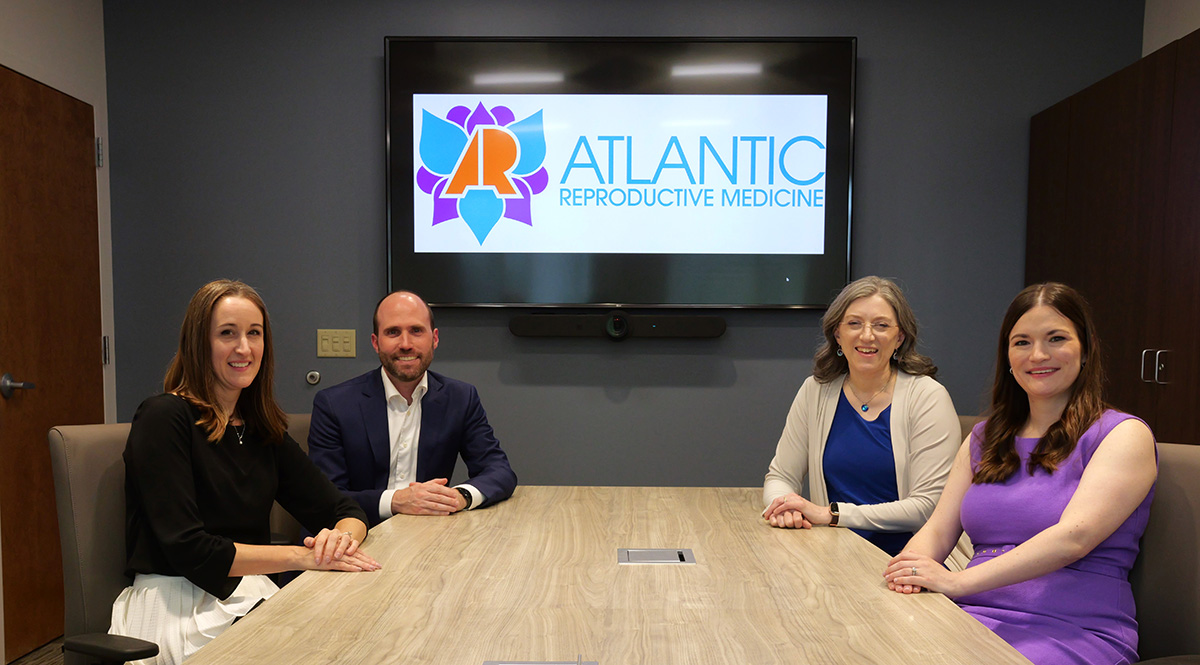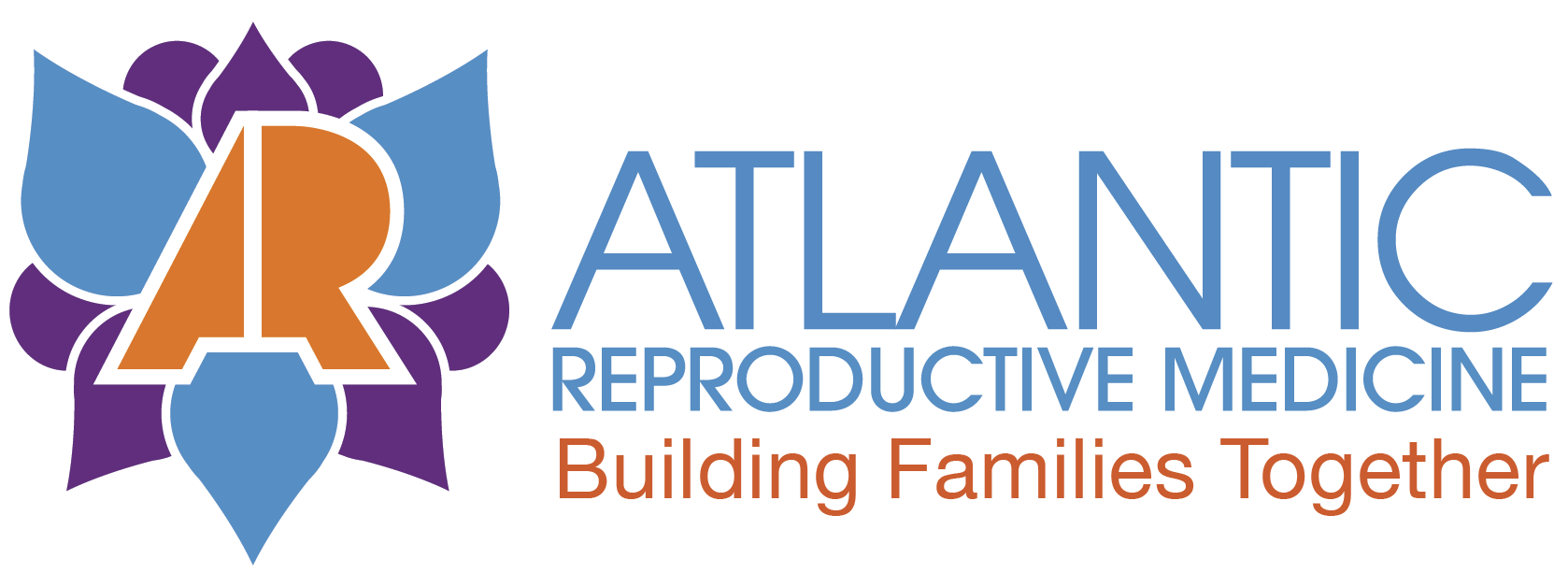Advocacy at Atlantic Reproductive Medicine

Our Mission
At Atlantic Reproductive Medicine, we are dedicated to helping individuals and couples realize their dreams of starting or growing their families by providing compassionate, personalized, and advanced reproductive care.
Our Commitment
- Comprehensive Care: Advanced medical technologies, ongoing monitoring, psychological counseling, financial planning, and legal resources.
- Diverse Treatments: Services such as IVF, reverse vasectomy, donor egg/embryo programs, and intrauterine insemination (IUI).
- Patient-Centered Approach: Initial consultations to guide informed decisions tailored to each unique situation.
Advocacy for Reproductive Rights
Atlantic Reproductive Medicine actively addresses concerns about the future of reproductive care amidst changing legislative landscapes.
Recently Atlantic Reproductive Medicine’s co-founder, Susannah Copland, published an editorial piece on the importance of keeping reproductive and fertility medical care between doctors and patients. You can read her entire piece here:
What Politicians Need to Understand About IVF.
Why Reproductive Rights Matter
- The Reality of Infertility: 1 in 6 people face infertility. IVF accounts for 2 out of every 100 births in the U.S.
- Women and Men are Affected: Approximately one-third of infertility is attributed to the female partner, one-third attributed to the male partner and one-third is caused by a combination of problems in both partners or, is unexplained.
- The Stakes: Without access to IVF, success rates for many patients drop from over 90% to less than 30%.

We proudly support RESOLVE: The National Infertility Association
RESOLVE advocates for:
- Ending infertility discrimination (protected under the ADA).
- Promoting IVF as essential healthcare.
- Advocating for insurance coverage for fertility treatments.
Learn more about RESOLVE’s work on their website.
What politicians, who would ban in vitro fertilization, need to understand
Human biology and medical treatments are too complex for “one size fits all” regulation.
September 25, 2024
Susannah Copland, MD, MSCR
Imagine you want something you believe will bring you joy for the rest of your life. To achieve your goal, you need help. It may take several attempts and methods may change as needed, but you and your helper make a good plan.
Imagine that someone who does not know you or your journey, who is not trained to offer the help you need, mandates that your helper is not allowed to use one of their most effective and safe tools.
This is the heartbreaking situation people who need fertility treatment and the reproductive medicine providers who serve them face as judges and policymakers consider efforts to limit access to fertility treatment, including in vitro fertilization (IVF), egg and sperm donation.
To see a person hold their child brings joy. Reproductive medicine providers embrace efforts to help us serve the one in six people who experience infertility and need help to become parents. To offer IVF, a reproductive endocrinologist completes four years of college, four years of medical school, four years of obstetrics and gynecology residency, and three years of fellowship.
We embrace regulations that help us keep our patients safe, annual medical licensing and board recertifications. We embrace professional society guidance with their thoughtful recommendations for best practices in medical ethics and the need for shared decision-making between patients and providers. We report to and have regular oversight visits from governmental agencies and professional organizations dedicated to quality and safety.
While surgery to improve anatomy and non-IVF treatments including fertility medicines and intrauterine insemination help some, we can attain a path to eventual success for over 90% of our patients only if we have access to IVF, egg, sperm, and embryo donation, and gestational carrier treatments.
Why?
Humans are beautifully made, but all made differently. Some have persistent troubles with eggs and sperm finding each other, interaction, or quality. Some have genetic conditions they do not want to pass on to their children. Some have difficulty carrying a pregnancy. IVF is a path to assist eggs and sperm interaction, identify embryos with a higher chance of healthy live birth, and place embryos into a receptive uterus.
Few fertilized eggs have both normal chromosomes and molecular competence to become an ongoing pregnancy, so some pursue multiple attempts, including egg, sperm, and embryo donation.
Each journey is unique, with no one right way that will serve everyone.
For some, IVF is their best treatment option, for others, their only treatment option. Take away IVF, egg and sperm donation and reproductive medicine specialists will go from counseling-patients they have a greater than 90% chance that treatments will eventually bring them to their family to a less than 30% chance restricted to non-IVF or donation options.
Think about your own medical care. Imagine your provider advised treatments exist that could over time bring a greater than 90% chance of achieving your medical goals, but the most successful tools were made unavailable by people who are not aware of your unique situation and not experts in the field. If your personal medical success was reduced to less than 30% chance of success, would you advocate for bodily autonomy and shared decision-making between patients and providers?
Human biology and medical treatments are too complex for “one size fits all” regulation. The reason providers complete extensive training, licensing, and certification is to gain the capability to offer safe and effective treatments tailored to those who need them.
One in six people experiences infertility in their lifetime. You do not need to imagine someone who has infertility. You know them, even if they have not shared their painful and private journey. Please remember them and the families they yearn to build when you consider supporting people and policies that protect the right to keep decisions about medical care between providers and patients.
